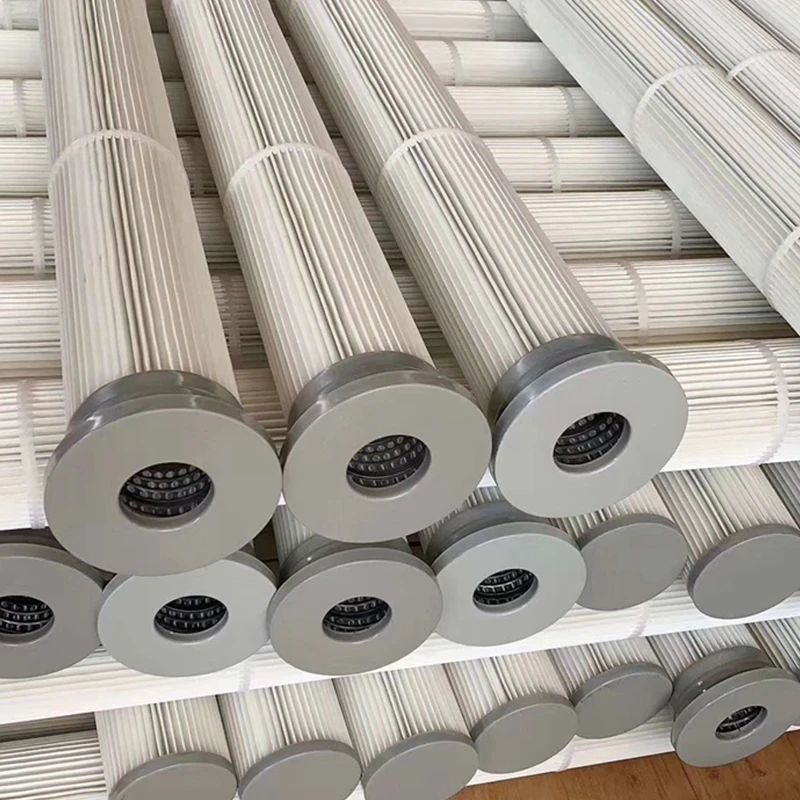 Tel:
+8615930870079
Tel:
+8615930870079
พ.ย. . 26, 2024 20:48 Back to list
High-Performance Cartridges for Silo Filtration Systems to Enhance Efficiency and Water Quality
Understanding Silo Filter Cartridges Essential Components for Efficient Filtration
In various industrial applications, maintaining the purity and quality of transported materials is of utmost importance. Among the technologies facilitating this requirement are silo filter cartridges. These components play a crucial role in ensuring that air and bulk materials remain free from contamination, thus impacting the efficiency and longevity of operations.
What is a Silo Filter Cartridge?
A silo filter cartridge is a specialized filtration device designed to remove particulate matter from air and other gases that enter or exit a storage silo. These cartridges are typically made from various materials, depending on the application, including polyester, polypropylene, and other synthetic or natural fibers. The design and construction of these cartridges allow them to capture fine dust and other particulates effectively, ensuring clean air and preventing contamination of stored materials.
The Importance of Filtration in Silo Systems
In industries such as agriculture, pharmaceuticals, food processing, and chemicals, the quality of materials stored in silos is paramount. For example, in the food industry, the presence of contaminants can lead to spoilage and affect consumer safety. Similarly, in the pharmaceuticals sector, purity is essential for ensuring product efficacy. Without efficient filtration, dust and particulates can build up, leading to several issues, including operational inefficiencies, equipment damage, and compromised product quality.
Silo filter cartridges help mitigate these risks by trapping airborne particles, thus maintaining the integrity of the ecosystem within the silo and ensuring a seamless flow of operations. They prevent the contamination of the materials inside silos and protect the associated machinery, which can be costly to repair or replace if clogged with foreign particles.
How Silo Filter Cartridges Work
silo filter cartridge

The functionality of silo filter cartridges relies on several mechanisms, primarily filtration, which can be divided into two main actions inertial impaction and sieving. As contaminated air flows through the filter, larger particles collide with and adhere to the fibers of the cartridge, while smaller particles may be captured through a sieving effect. Once the particles are trapped, the cleaned air is released back into the atmosphere or redirected for subsequent processes.
It's important to note that the efficiency of a filter cartridge can depend on several variables, including the filter material, the size of the particles, and the flow rate of the air or gas being filtered. Regular maintenance, including timely replacement of cartridges, is crucial to ensure optimal performance and prevent system failures.
Choosing the Right Silo Filter Cartridge
Selecting an appropriate silo filter cartridge involves several considerations. The first step is to assess the specific requirements of the application. Factors such as operating conditions, the nature of the particulate matter, and regulatory compliance should guide the decision-making process. It may also be beneficial to consult with manufacturers or industry experts who can provide insights into the best materials and designs for your specific needs.
Moreover, understanding the lifecycle of the filter is essential. Silo filter cartridges do not last forever. Regular monitoring and replacement cycles should be established based on the manufacturer's recommendations and the observed performance in real-world conditions.
Conclusion
In conclusion, silo filter cartridges are vital components in maintaining the integrity of stored materials across various industries. By ensuring efficient air filtration, they protect both the quality of materials and the longevity of equipment. As industries continue to evolve and face new challenges, the role of these filtration systems in promoting operational efficiency and safety will only become more pronounced. Investing in high-quality silo filter cartridges and prioritizing their maintenance can ultimately contribute to enhanced productivity and compliance in any industrial setting.
-
Types and Applications of Air Filtration CartridgesNewsJul.28,2025
-
The Role of Gas Turbine FiltersNewsJul.28,2025
-
Mastering Air Filter Cartridge UseNewsJul.28,2025
-
Advanced Turbine Filters for Modern Gas TurbinesNewsJul.28,2025
-
Cellulose Air Filter Cartridge Advantages in Dust FiltrationNewsJul.28,2025
-
Cellulose Filters for Air Particle ReductionNewsJul.28,2025

 Email:
Email:





